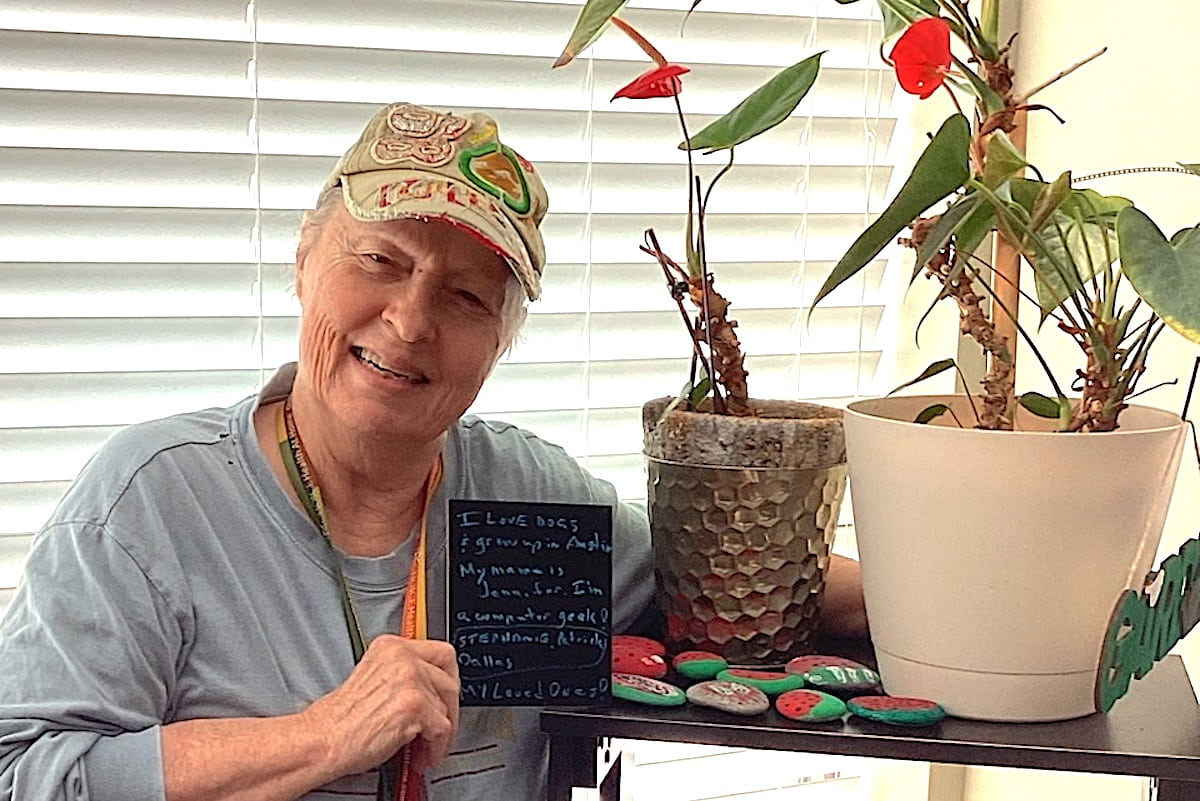Dementia is a significant health challenge that impacts not only the individuals facing it but also their families and caregivers. Seniors who have this condition typically progress through stages, eventually making it impossible for them to live at home.
It takes a while to become familiar with the types, stages, and best options for dementia care in Texas. Yet, much of the time, families do not realize that their loved one is close to being ready or already needs this kind of care, leaving them little time to make decisions.
Moving into memory care is life-changing, so people tend to hesitate. However, these communities provide highly targeted support, specialized amenities, and activities geared toward residents with different forms of dementia.

As an Austin assisted living community with memory care for dementia services, Tech Ridge Oaks can offer your loved one passionate support in a home-like environment. We are happy to explain the causes and symptoms of memory loss, how our community differs from dementia care facilities in Texas, and information about support services that help our residents thrive.
What is dementia, exactly?
Dementia is not a specific condition. It is a neurological condition covering various cognitive impairments affecting memory, reasoning, and daily functioning. Individuals with dementia may experience memory loss, confusion, and challenges with communication and problem-solving.
Dementia care communities in Austin, like Tech Ridge Oaks, strive to create easy-to-navigate, stress-free environments so residents feel comfortable and supported.
Dementia Symptoms and Diagnosis
Memory loss, difficulty in problem-solving, and challenges with communication are key symptoms of dementia. The Diagnostic and Statistical Manual of Mental Disorders (5th ed.; American Psychiatric Association [APA], 2013) categorizes dementia as a major neurocognitive disorder based on these criteria and others:
- A significant decline from previous performance levels in learning and memory, social cognition, language, and executive function
- Cognitive deficits that interfere with everyday activities and independence
- The cognitive deficits cannot be explained by other diagnoses, like schizophrenia
A medical professional needs a clinical assessment and standard testing to diagnose dementia correctly. Once the individual is diagnosed, you can start looking for communities that offer assisted living with dementia care.
What are the different types of dementia?
Dementia encompasses a diverse group of cognitive disorders, not a singular condition. They share common symptoms but differ in their underlying causes. By acknowledging the spectrum of conditions within dementia, Tech Ridge Oaks empowers a more comprehensive approach to care and communication.
These are three of the most common forms of dementia:
Alzheimer’s
The most prevalent form of dementia is Alzheimer’s; it primarily manifests as memory loss and cognitive decline, gradually affecting the ability to carry out daily tasks. While the exact cause is not fully understood, factors like genetics, brain changes, and vascular changes are believed to contribute to the development of Alzheimer’s.
Vascular Dementia
This type of dementia is often a result of impaired blood flow to the brain, which leads to cognitive decline. It may occur after a stroke or due to other vascular issues, creating the need for a move to a dementia care center.
Lewy Body Dementia
Lewy body dementia involves abnormal protein deposits in the brain, causing disruptions in thinking and behavior. Individuals with this form may experience visual hallucinations and fluctuations in alertness, requiring specialized assisted living with dementia care.
The Three Stages of Dementia
Dementia progresses through stages, each presenting distinct challenges. Understanding the symptoms helps families and caregivers provide appropriate support.
Early Stage:
- Mild cognitive decline with subtle memory lapses
- Individuals may still manage daily activities independently
Middle Stage:
- Moderate cognitive decline with noticeable memory and cognitive impairments
- Challenges in communication, reasoning, and problem-solving become apparent
Late Stage:
- Severe cognitive decline, impacting overall functioning
- Individuals often require assistance with basic daily activities, and communication becomes extremely challenging
About Dementia Care in Texas
When researching dementia care facilities in Texas, you might find nursing homes, assisted living properties, and communities like Tech Ridge Oak that offer assisted living with dementia care.
We go beyond traditional assisted living by tailoring our services to the unique needs of individuals with dementia. Our structured environment offers our beloved residents specialized care and activities that focus on preserving their dignity and enhancing their quality of life:
- Specialized care in all phases of dementia
- Knowledgeable, compassionate caregivers on-site 24/7
- Medication management
- Personal assistance with daily needs based on individualized care plans
- Personal medical alert systems
- Housekeeping and personal laundry service
- Specially designed, personalized My Legacy program
- Activity groups like the Green Thumb Club
- Pet therapy
Tech Ridge Oaks is part of the National Council of Certified Dementia Practitioners, and we are proud of the focused, passionate services we provide in our memory care in The Cottage. Our highly trained professionals work tirelessly to create a nurturing atmosphere, and the activities stimulate cognitive function and encourage a strong sense of community and belonging.
Embrace Tomorrow with Tech Ridge Oaks Memory Care for Dementia
Unlock peace of mind and exceptional care for your loved one at Tech Ridge Oak’s state-of-the-art memory care community. Passion Is Our Purpose and we invite you to contact us to arrange a personalized tour.



